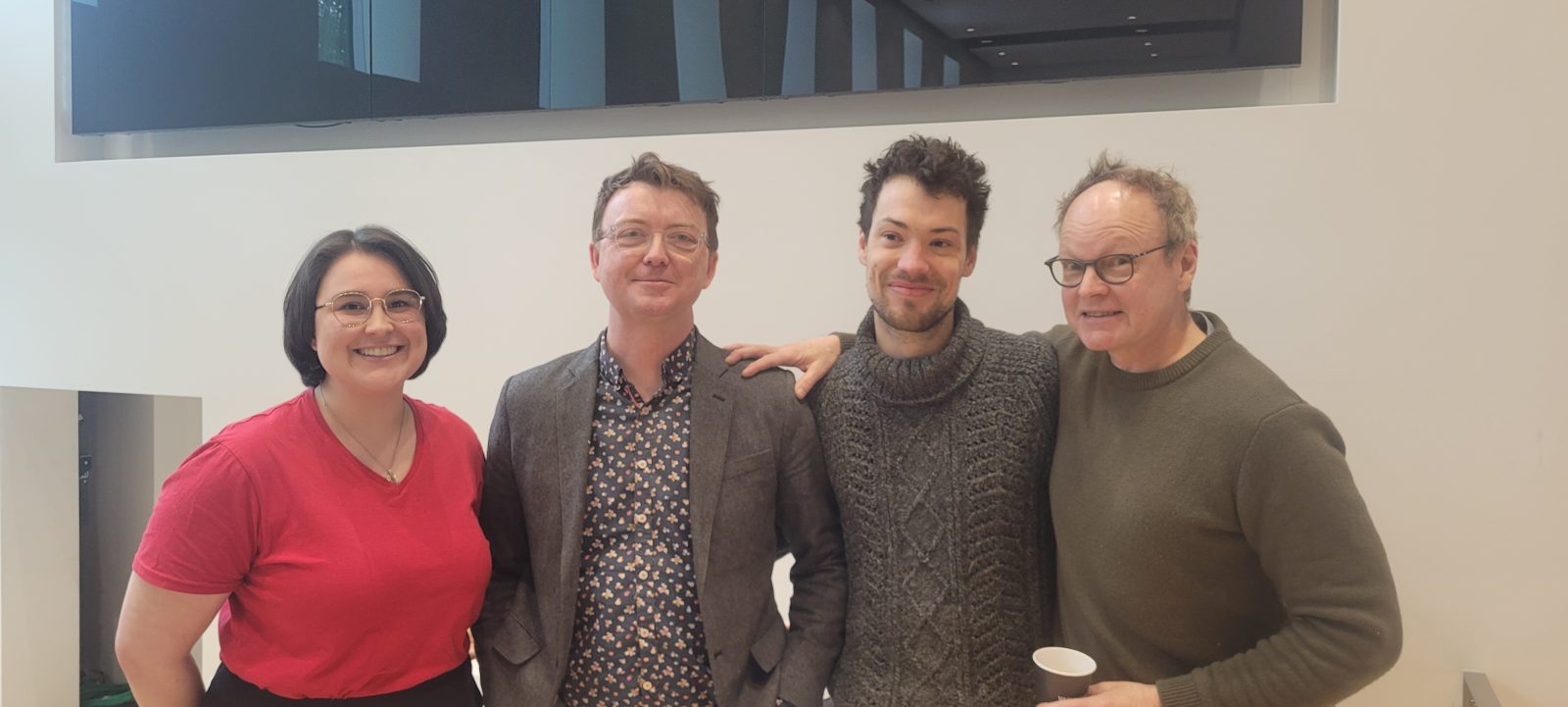By Lawrence Belanger
Local Journalism Initiative
Bishop’s University is holding its 18th annual Research Week, where students and professors from the institution share some of their research efforts and findings with the general public. Monday’s talks discussed agriculture, astrophysics, and video essays, highlighting the breadth of the topics covered this week.
Sustainable Agriculture and Farming Systems professor and researcher Dr. Vivian Valencia gave a talk about various “lighthouse” initiatives surrounding food systems and the sorts of cultural shifts that will be necessary to reduce food waste and hunger. According to Valencia, these “extraordinary” examples of farm and farming systems may serve as the basis of what the world could be like in the future. She talked about how these initiatives serve as beacons to guide sustainable development, such as increasing the diversity of food options in a community or challenging preconceptions about hunger and poverty.
Questions for Valencia focused on community fridges, of which there are two in town, one at Bishop’s along with a seasonal fridge in Square Queen.
Master’s student Élodie Lescure discussed how her research seeks to uncover the cosmic source of the heaviest elements, like gold and uranium. Examining neutron stars, Lescure’s project aims to determine to what extent neutron stars are the source of these elements.
“There are still loads of questions unanswered,” said Lescure. Two neutron stars were detected colliding with each other only in 2017, and they remain the only observed instance. Are neutron star mergers responsible for all these elements? If not, how much? Where else are the heaviest elements created? To answer these questions, she compares the quantity a neutron star merger creates to the amount known to exist.
“We do know how much heavy elements were produced throughout history, explained Lescure, while a breakthrough in her advisory team enabled researchers to know exactly how much this one merger created of various heavy elements. One day, she says her research will allow people to determine if “the gold in your jewelry or the silver that you find in electronics or uranium used to create electricity was actually produced in these mergers.”
Questions focused on how her research was conducted, such as how much of it was through computer simulations.
Finally, Drs. Shawn Malley and Gregory Brophy, alongside student Alexander Bergeron, talked about their work researching and creating video essays within an academic setting/context. “This is a relatively new kind of critical and creative way of approaching problems,” explained Malley. Their project deals with science fiction films, using video essays to explore and discuss some of the critical problems presented in sci-fi.
“Film, as we all know, is a dynamic, moving medium,” explained Malley. According to the trio, the video essay allows for the use of film language (editing, sound design, visual properties, etc) to make persuasive critical arguments about a piece of media in a way that the traditional written essay can’t, particularly when discussing science fiction films.
“Writing about film in print culture [has] certain shortcomings when it comes to dealing with the textures of what we see and hear when we’re watching the film,” Malley explained. Bergeron detailed how the project intersected the different pillars of his academic life.
“I’m a student, but I’m also a technician and an artist,” said Bergeron, who serves as the project’s digital media research assistant. “This project was the intersection of those three disciplines,” where he worked as an art curator selecting clips and pieces for the essay, a technician solving computer problems, and a student pursuing his academic field.
Brophy echoed how the research project has broad intersections. “We are seeing quite a good handful of students in each class who are ready to jump into that space between fan culture and [academics],” he said.
Questions for the three humanities researchers focused on the interdisciplinary potential of the film essay, with Dr. Valencia in particular curious about the potential for video essays on topics related to her field of work.
In a press release, Dr. Joachim Jean-Jules, Director of the Office of Research and Graduate Studies, praised the research arm of the institution as a tool for societal improvement:
“Through research, Bishop’s University hopes to advance social and technological innovation and produce better citizens,” for a more equitable, diverse, and inclusive society Our research findings are converted into knowledge and solutions for businesses, governments, communities, and society.
Monday’s talks were held in the Library Learning Commons, on the main steps to the second floor, and questions abounded from the researcher’s academic colleagues. Students stayed for a few minutes at a time, observing the presentation in parts.
A series of Research Talks, Poster Presentations and Conferences will continue to be held throughout the week. Closing ceremonies to be held on March 23 will include awards for the students’ poster presentations. The schedule for Research Week 2023 is posted on the ubishops.ca website, available here:
https://www.ubishops.ca/wp-content/uploads/Research-Week-Schedule-2023-NEW.pdf
Attendance is free and open to the public.



